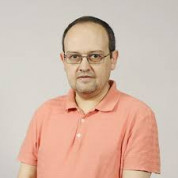 Representational Theories of Consciousness
Representational Theories of ConsciousnessFrancisco Javier López Vidal, October 25th, 2018
Javier Vidal has a degree in Philosophy from the University of Navarra and a PhD in Philosophy from the University of Oviedo (Spain). He is currently Associate Professor in the Philosophy Department of the Universidad de Concepción (Chile), where he develops teaching and research in the areas of Philosophy of Language and Philosophy of Mind. He is the author of more than 25 publications in these areas. In recent years, his research has focused on studying the first person as well as the relationship between consciousness and self-consciousness. He is currently a researcher responsible for the Fondecyt project (CONICYT, Government of Chile): “Psychological self-knowledge and immunity to an identification error”.Download PDF (in Spanish): Francisco Javier Vidal López – Teorías representacionales de la conciencia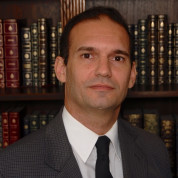 Problems of the materialism in Philosophy of Mind
Problems of the materialism in Philosophy of MindIgnacio Aguinalde, October 4th, 2018
Ignacio Aguinalde Sáenz has a degree in Philosophy and in Psychology, both from Universidad Católica Argentina. He is author of an introductory study to and an annotated translation into Spanish of Thomas Aquinas’ commentary on Aristotle’s On generation and corruption, The principles of nature, and other cosmological opuscula (Eunsa, 2005), and of the book Psychology(EDUCA 2009). He has collaborated with research projects of the University of Navarra. His areas of interest are the philosophy of nature, epistemology and cognitive psychology. He teaches Philosophical Anthropology and Statistics at the Biomedical School of Austral University. At present, he is at the end stage of his doctoral thesis on John Searle’s philosophy of mind.
Download PDF (in Spanish): Ignacio Aguinalde – Problemas del materialismo en la filosofía de la mente
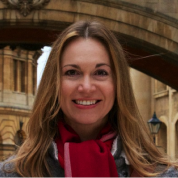 Neuroscience and the Protective Role of Religiosity in Mental Health
Neuroscience and the Protective Role of Religiosity in Mental HealthConnie Svob, September 20th, 2018
Dr. Connie Svob graduated with a Ph.D. in psychology from the University of Alberta in 2014. Her doctoral training included two terms as a Visiting Student at the University of Oxford where she studied the interface of theology and psychology. She conducted post-doctoral research at the University of Notre Dame in the Department of Psychology and at the Center for Philosophy of Religion. In 2015, she was appointed as an Assistant Professor of Clinical Psychology (in Psychiatry and Epidemiology) at Columbia University and cross-appointed as a Research Scientist at New York State Psychiatric Institute.
Dr. Svob’s research focuses broadly on applied social cognition in clinical and real world settings.
Download PDF: coming soon.
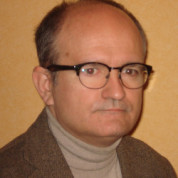 Can Artificial Intelligence Provide Machines with a "Mind"? Reflections from Philosophy
Can Artificial Intelligence Provide Machines with a "Mind"? Reflections from PhilosophyFrancisco José Soler Gil, August 9th, 2018
Francisco José Soler Gil has studied Physics and Philosophy at the University of Granada, and holds a PhD in Philosophy from the University of Bremen (Germany). He has worked in the Philosophy of Physics research group of this university, as well as in the particle astrophysics research group of the Technical University of Dortmund (Germany). He is currently a researcher at the Faculty of Philosophy of the University of Seville. He has specialized in philosophy of nature and physics. He has published, among others, the following books: “Aristotle in the Quantum World” (2003), “The Divine and the Human in the Universe of Stephen Hawking” (2008), “Discovery or Construction? Astroparticle Physics and the Search for Physical Reality” (2012), “Materialist Mythology of Science” (2013), “Philosophie der Kosmologie” (2014), and “The Universe to Debate” (2016).
Download PDF (in Spanish): Francisco Soler Gil – ¿Puede la inteligencia artificial dar una “mente” a las máquinas?
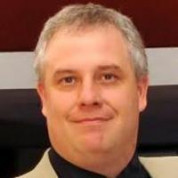 Can Artificial Intelligence Provide Machines with a "Mind"?
Can Artificial Intelligence Provide Machines with a "Mind"?Leonardo Rufiner, August 9th, 2018
Leonardo Rufiner holds a degree in bioengineering from the National University of Entre Rios, a master degree in Biomedical Engineering from the Autonomous Metropolitan University (Mexico) and a PhD in Engineering from the University of Buenos Aires. He is Researcher at the CONICET and Professor at the National University of Entre Ríos and the Universidad Nacional del Litoral. He directs the Laboratory of Cybernetics (UNER) and is part of the Research Center in Signals, Systems and Computational Intelligence (UNL-CONICET).
Download PDF (in Spanish): Leonardo Rufiner – ¿Puede la Inteligencia artificial dar una “mente” a las máquinas?
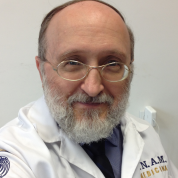 Is God an emergent phenomena of the human brain?
Is God an emergent phenomena of the human brain?Alexandre de Pomposo, August 9th, 2018
Alexandre de Pomposo has a PhD in Physical Sciences from the Free University of Brussels, Belgium, with a thesis directed by Professor Ilya Prigogine (Nobel Prize in Chemistry 1977). Bachelor of Philosophy at the Catholic University of Leuven, Belgium. Surgeon by the National Autonomous University of Mexico. Member of the Royal Academy of Sciences of Belgium as a free researcher. Member of the French Society of Philosophy, of the Xavier Zubiri Foundation of Madrid, of the Ethics and Research Committee for Human Studies of Médica Sur in Mexico City. He participates in the Human Connectome Project as an external collaborator. Research Coordinator and Professor of the Clinical Teaching Secretariat of the Faculty of Medicine of the UNAM. Professor and Researcher Emeritus at the Real World Multiversity Edgar Morin of Mexico City.
Download PDF (in Spanish): Alexandre de Pomposo – ¿Es Dios un fenómeno emergente del cerebro humano?
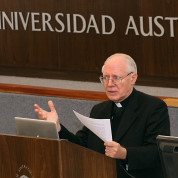 The relevance of Neuroscience in the study of religiosity
The relevance of Neuroscience in the study of religiosityJuan José Sanguineti, August 9th, 2018
Juan José Sanguineti has a PhD in Philosophy (Universidad de Navarra, Spain). He is Professor of Philosophy of Knowledge at the School of Philosophy at the Pontifical University of the Holy Cross (Rome). He has published fifteen books and nearly a hundred scientific articles on theory of knowledge, philosophy of science, philosophy of nature, philosophy of mind and the neurosciences. He was Director of the Scientific Committee of the Project STOQ III (Rome, 2007-2010, University of the Holy Cross, area of Neurosciences). He regularly delivers graduate courses and seminars at different universities in Latin America. He is ordinary member of the Pontifical Roman Academy of Saint Thomas and of the Sociedad Tomista Argentina. He is a member of the scientific committee of the journal Acta Philosophica (University of the Holy Cross).
Download PDF (in Spanish): Juan José Sanguineti – La relevancia de la neurociencia en el estudio de la religiosidad
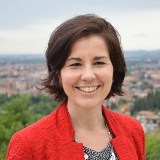 Transhumanism - What value does the biological limit have in the constitution of the life of a person?
Transhumanism - What value does the biological limit have in the constitution of the life of a person?Marta Bertolaso, August 9th, 2018
Marta Bertolaso is Associate Professor of Philosophy of Science at the Faculty of Engineering and at the Institute of Philosophy of the Scientific and Technological Practice of the University Bio-Medical Campus of Rome. Her research projects deal with new epistemological and philosophical challenges in the fields of biological and systemic development (with special emphasis on cancer), scientific progress, silica medicine, modeling and validation processes. She has been a professor of philosophy of science and bioethics at different universities in Italy, Munich and St. Louis (USA). Among her latest publications are Philosophy of Cancer – A Dynamic and Relational View. Springer Series in “History, Philosophy & Theory of Life Sciences”, 2016, and The Future of Scientific Practice: ‘Bio-Techno-Logos’, Pickering & Chatto Publishers, London, 2015. She is currently also working for a new Series of Springer, whose title is “Human Perspectives in Bio-Medicine and Technology”.
Download PDF (in Spanish): Marta Bertolaso – El valor del limite biologico en la constitucion de la vida de una persona
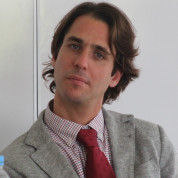 What does the notion of ‘person’ add to those of ‘mind’ and ‘self’?
What does the notion of ‘person’ add to those of ‘mind’ and ‘self’?Gonzalo Arrondo, August 8th, 2018
Gonzalo Arrondo Ostíz is a researcher of the Mind-Brain group at the Institute for Culture and Society (University of Navarra, Spain). He has experience in neuropsychology, functional neuroimaging, evidence-based biopsychology and medicine, and more generally in empirical psychology and cognitive neuroscience. His current interests pivot around the study of cognitive decision-making processes, evidence-based psychology and psychiatry, and, on a more theoretical level, epistemology of psychiatry. He is in charge of some of the projects of the Mind-Brain group and also lends support to the design and execution of the empirical studies of the group.
Download PDF (in Spanish): Gonzalo Arrondo – ¿Qué añade la noción de “persona” a las de “mente” y de “yo”?
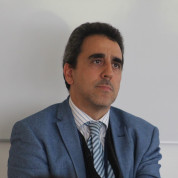 What does the notion of ‘person’ add to those of ‘mind’ and ‘self’?
What does the notion of ‘person’ add to those of ‘mind’ and ‘self’?José Ignacio Murillo, August 8th, 2018
José Ignacio Murillo is Professor in the Philosophy Department of the University of Navarra. His research is framed in the field of anthropology and is animated by the interest in integrating the diverse scientific perspectives that study the human being. This concern has also impelled him to dialogue with the natural and social sciences, and also with theology. In recent years he has devoted special attention to the relationship between biology and anthropology, and has studied the subject of life and living beings in various authors. He currently directs the interdisciplinary project “Biology and Subjectivity in Contemporary Philosophy and Neuroscience” at the Institute of Culture and Society (ICS) of the University of Navarra.
Download PDF (in Spanish): José Ignacio Muriilo – ¿Qué añade la noción de ‘persona’ a las nociones de ‘mente’ y de ‘yo’?
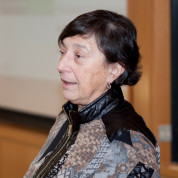 How Does Neuroscience Answer to the Question About the Second Person Perspective?
How Does Neuroscience Answer to the Question About the Second Person Perspective?Ángela Suburo, August 8th, 2018
Ángela Suburo has a PhD in Medicine (Universidad de Buenos Aires), and she specializes in neurosciences. She is a Senior Researcher at the National Council of Scientific and Technological Research (CONICET) and she is also Professor of Cellular and Molecular Medicine at Universidad Austral. She is member of several associations: Association for Research in Vision and Ophthalmology (Chairperson of the Retinal Cell Biology section), Society for Neuroscience, International Society for Eye Research, Asociación de Investigación en Visión y Oftalmología, Sociedad Argentina de Neuroquímica and Sociedad Argentina de Investigación Clínica. She leads a group of young researchers dedicated to the study of neurodegenerative diseases in the retina and in the brain. She has written numerous articles. In 2011 her work “Mecanismos de protección de los fotorreceptores: papel de los glucocorticoides” received the Nocetti and Tiscornia Prize, awarded by the National Academy of Medicine (Buenos Aires).
Download PDF (in Spanish): Ángela Suburo – ¿Cómo responden las neurociencias a la pregunta sobre la perspectiva de la segunda persona?
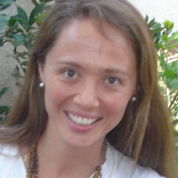 Can the second-person perspective play any heuristic role in neuroscience?
Can the second-person perspective play any heuristic role in neuroscience?Ivana Anton Mlinar, August 8th, 2018
Ivana Anton Mlinar has a PhD in Philosophy from the National University of Cuyo – UNCuyo (as a grantee from DAAD in the Husserl-Archiv of the Cologne University, Germany). She is a Researcher at the National Council of Scientific and Technological Research (CONICET) and she is Professor of Philosophy of Language at the UNCuyo. She is director of the journals Philosophiaand Revista de Fenomenología y Ciencia Cognitiva (with Jethro Masís). She directs the research project “Fenomenología y neurociencias: estudios en torno al self” (UNCuyo). [Fenomenology and Neuroscience: Studies about the Self].
Download PDF (in Spanish): Ivana Anton Mlinar – La perspectiva de segunda persona y su papel en la neurociencia
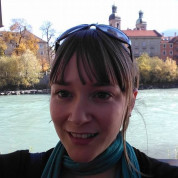 Agency and rationality, in which ways are we rational agents?
Agency and rationality, in which ways are we rational agents?Ayelen Sanchez, June 14th, 2018
Ayelen Sanchez has a degree in Philosophy from the Universidad Nacional del Sur (UNS), where she works as an assistant in the courses of Methaphysics, Logic and History of Modern Philosophy. She is currently developing doctoral research in the area of Philosophy of the Mind. The main topic of her research is the atribution and self-atribution of intentionality, from the perspective of the dialogue between philosophy and some of the most relevant outcomes of the cognitive psychology.
Download PDF (in Spanish): Ayelen Sanchez – ¿En qué sentido somos agentes racionales?
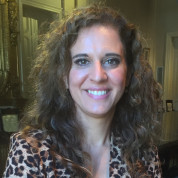 Development and validation of a virtual intervention program to promote prosociality: Hero Program
Development and validation of a virtual intervention program to promote prosociality: Hero ProgramBelén Mesurado, March 22nd, 2018
Belén Mesurado has a degree in Psychology (Universidad del Norte Santo Tomás de Aquino), and a PhD in Psychology (Universidad Nacional de San Luis). She is a Research Associate of the National Council of Scientific and Technical Research (CONICET) based at the Interdisciplinary Center for Research in Mathematics and Experimental Psychology (CIIPME). She works on issues related to Positive Psychology, focusing on the study of family and psycho-emotional factors in promoting prosocial behaviors. She developed studies on optimal experience (flow) linked to the promotion of pro-social activities and academic commitment in childhood and adolescence.
Download PDF (in Spanish): Belén Mesurado – Desarrollo y validación de un programa de intervención virtual para promover la prosocialidad: Hero Program
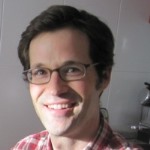 Enjoyment and the Brain. The other ‘Hard Problem’ of Psychology and Philosophy of Mind
Enjoyment and the Brain. The other ‘Hard Problem’ of Psychology and Philosophy of MindNathaniel Barrett, November 9th, 2017
Nathaniel Barrett specializes in philosophical and historical studies of the relationship between science and religion, with special attention to the concepts of nature that arise from the religious and scientific conceptions of the human person. His current research explores how contemporary philosophical and scientific theories of embodiment can be used to understand traditional Confucian and Taoist models of spiritual realization. Dr. Barrett is the coordinator of the “Religious and Psychological Well-Being Project” at the Danielsen Institute, Boston University. He is also a researcher at the Institute of Culture and Society of the University of Navarra.
Download PDF: Nathaniel Barrett – Enjoyment and the Brain. The other ‘Hard Problem’ of Psychology and Philosophy of Mind
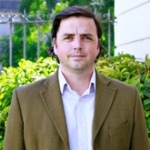 Traces of a Personal God in the Universe
Traces of a Personal God in the UniverseFrancisco O'Reilly, October 19th, 2017
Francisco O’Reilly (Buenos Aires, 1979) holds a degree in Philosophy from UNSTA – Universidad del Norte Santo Tomás de Aquino (Argentina), and a PhD in Philosophy from the University of Navarra. He is currently Director of the Department of Philosophy of the University of Montevideo and researcher Level I of SNI-ANII (Uruguay). He has conducted research stays at UNISINOS (Porto Alegre) and at the University of Notre Dame (USA). His researches are within the areas of history of medieval philosophy and philosophy of religion.
Download PDF (in Spanish): Francisco O’Reilly – ¿Hay huellas de un Dios personal en la creación?
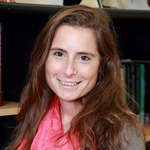 Which neuroscientific findings enlighten in a novel way our understanding of the human person?
Which neuroscientific findings enlighten in a novel way our understanding of the human person?Agustina Lombardi, August 3rd, 2017
Agustina Lombardi is Research Assistant at the Ian Ramsey Centre, Oxford, and PhD student at the Universidad Católica Argentina, where she got her degree in Philosophy in 2011. In 2014 she obtained a scholarship from the University of Oxford for a Master’s degree in Modern Theology. Her area of interest is the phenomenology of the person, in relation to scientific research on freedom and the personal self. She is Professor of Philosophy at the Faculty of Biomedical Sciences of the Austral University.
Download PDF (in Spanish): Agustina Lombardi – ¿Qué descubrimientos neurocientíficos iluminan de un modo novedoso nuestra comprensión de la persona humana?
 How does neuroscience enlighten our understanding of the human person?
How does neuroscience enlighten our understanding of the human person?Ivana Anton Mlinar, August 3rd, 2017
Ivana Anton Mlinar has a PhD in Philosophy from the National University of Cuyo – UNCuyo (as a grantee from DAAD in the Husserl-Archiv of the Cologne University, Germany). She is a Junior Researcher at the National Council of Scientific and Technological Research (CONICET) and she is Professor of Philosophy of Language at the UNCuyo. She is director of the journals Philosophiaand Revista de Fenomenología y Ciencia Cognitiva (with Jethro Masís). She directs the research project “Fenomenología y neurociencias: perspectivas en torno a la empatía” (UNCuyo) [Fenomenology and Neuroscience: Perspectives on Empathy].
Download PDF (in Spanish): Ivana Anton Mlinar – ¿Cómo iluminan las neurociencias la comprensión de la persona humana?
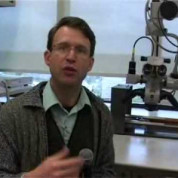 Chronic pain and self.
Chronic pain and self.Pablo Brumovsky, August 2nd, 2017
Pablo Brumovsky is Doctor in Biomedical Sciences from the Universidad Austral and holds a PhD in Neurosciences from the Karolinska Institute. He is Associate Researcher of CONICET at the Institute of Research in Traslational Medicine (CONICET-Universidad Austral) and Professor of Anatomy at the University Austral. He is a member of the International Association for the Study of Pain and directs a research group devoted to the study of chronic pain of visceral or somatic origin.
Download PDF (in Spanish): Pablo Brumovsky – Dolor crónico y “yo”
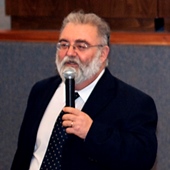 Self-understanding and Cognitive Disfunctions
Self-understanding and Cognitive DisfunctionsPascual Ángel Gargiulo, August 2nd, 2017
Pascual A. Gargiulo is a doctor in medicine, specialist in psychiatry and legalistic doctor by the National University of Cuyo. He is professor of Pharmacology at the Faculty of Medical Sciences of that university and an independent researcher at CONICET. He is founder and current director of the Laboratory of Neurosciences and Experimental Psychology. He has concentrated his research on epistemological and experimental approaches to psychopathological disorders, including applications of neurosciences in education.
Download PDF (in Spanish): Pascual Gargiulo – Autocomprensión y disfunciones cognitivas
 Can self-understanding be preserved despite cognitive dysfunctions? On neural correlate
Can self-understanding be preserved despite cognitive dysfunctions? On neural correlateConsuelo Martínez Priego, August 2nd, 2017
Consuelo Martínez Priego holds a doctorate in Psychology from the Universidad Complutense de Madrid and a PhD in philosophy from the University of Navarra. She develops her teaching and research activity at the Villanueva University Center (attached to the Universidad Complutense de Madrid). Between the years 2013-2015 she has also been a professor and researcher at the Universidad Panamericana. She is the author of numerous scientific publications. Among her books stand out “Neuroscience and Affectivity. The psychology of Juan Rof Carballo”(Erasmus, 2012) and “The family and its fields” (Porrúa 2016). In her publications she approaches the themes of human freedom, affectivity and emotions, as well as intrafamily bonds, articulating the philosophical, psychological and educational perspectives. She is Member of the Spanish Society of History of Psychology, of the Spanish Association of Personalism and of the Institute of Philosophical Studies Leonardo Polo.
Download PDF (in Spanish): Consuelo Martínez Priego – ¿Puede preservarse la auto-comprensión con disfunciones cognitivas? Sobre el correlato neural
 How compelling is the distinction between the first- and the tirhd-person perspectives as an argument against naturalism?
How compelling is the distinction between the first- and the tirhd-person perspectives as an argument against naturalism?Ángela Suburo, August 2nd, 2017
Ángela Suburo has a PhD in Medicine (Universidad de Buenos Aires), and she specializes in neurosciences. She is a Senior Researcher at the National Council of Scientific and Technological Research (CONICET) and she is also Professor of Cellular and Molecular Medicine at Universidad Austral. She is member of several associations: Association for Research in Vision and Ophthalmology (Chairperson of the Retinal Cell Biology section), Society for Neuroscience, International Society for Eye Research, Asociación de Investigación en Visión y Oftalmología, Sociedad Argentina de Neuroquímica and Sociedad Argentina de Investigación Clínica. She leads a group of young researchers dedicated to the study of neurodegenerative diseases in the retina and in the brain. She has written numerous articles. In 2011 her work “Mecanismos de protección de los fotorreceptores: papel de los glucocorticoides” received the Nocetti and Tiscornia Prize, awarded by the National Academy of Medicine (Buenos Aires).
Download PDF (in Spanish): Ángela Suburo – ¿Cuán convincente resulta la distinción entre primera y tercera persona como un argumento contra el naturalismo?
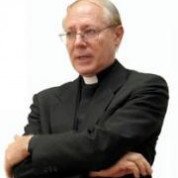 How compelling is the distinction between the first- and the tirhd-person perspectives as an argument against naturalism?
How compelling is the distinction between the first- and the tirhd-person perspectives as an argument against naturalism?Juan José Sanguineti, August 2nd, 2017
Juan José Sanguineti has a PhD in Philosophy (Universidad de Navarra, Spain). He is Professor of Philosophy of Knowledge at the School of Philosophy of the Pontifical University of the Holy Cross (Rome). He has published fifteen books and nearly a hundred scientific articles on theory of knowledge, philosophy of science, philosophy of nature, philosophy of mind and the neurosciences. He was Director of the Scientific Committee of the Project STOQ III (Rome, 2007-2010, University of the Holy Cross, area of Neurosciences). He regularly delivers graduate courses and seminars at different universities in Latin America. He is ordinary member of the Pontifical Roman Academy of Saint Thomas and of the Sociedad Tomista Argentina. He is a member of the scientific committee of the journal Acta Philosophica (University of the Holy Cross). See more.
Download PDF (in Spanish): Juan José Sanguineti – Perspectivas de primera y tercera persona
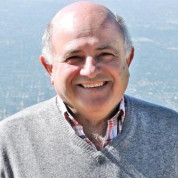 Psychology, self and person. Psychology's contribution to the knowledge of the human being
Psychology, self and person. Psychology's contribution to the knowledge of the human beingJosé Eduardo Moreno, August 2nd, 2017
José Eduardo Moreno has a degree in Psychology from the Universidad de Buenos Aires and a Ph.D. in Psychology from the Universidad del Salvador. He is Deputy Director of the Interdisciplinary Center for Research in Mathematics and Experimental Psychology “Dr. Horacio J. A. Rimoldi” (CIIPME – CONICET) and Independent Researcher of the National Council of Scientific and Technical Research. He is also Titular Professor of the Pontificia Universidad Catolica Argentina and Ordinary Consulting Professor at the Universidad del Salvador. He is a specialist in developmental psychology (childhood and adolescence). His main research topics: a) psychological theories of social and moral development; b) evaluation of values and ethical positions; c) vocational and occupational motivations; d) self-concept, self-esteem and relationship with peers in adolescence.
Download PDF (in Spanish): José Eduardo Moreno – Psicología, yo y persona. Aportes de la psicología al conocimiento del ser humano
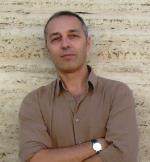 Neuroscience and the knowledge of the human being
Neuroscience and the knowledge of the human beingAlfredo Marcos Martínez, August 2nd, 2017
Alfredo F. Marcos Martínez holds a PhD in Philosophy from the University of Barcelona and is Professor of Philosophy of Science at the University of Valladolid. He has been a visiting researcher at Cambridge and Rome. He has taught and lectured at numerous universities in Spain, Colombia, Italy, Mexico, France, Argentina and Poland. He lectures on history and philosophy of science, bioethics, science communication. He has published a dozen books and more than sixty articles and chapters on the history and philosophy of science, environmental ethics, bioethics, philosophy of biology, science communication and Aristotelian studies. He coordinates the philosophy of science section of the journal Investigación y Ciencia. He has been director of the department of philosophy at the University of Valladolid. He has been member of the bioethics committees of several hospitals. He currently coordinates the Interuniversity PhD in Logic and Philosophy of Science.
Download PDF (in Spanish): Las neurociencias y el conocimiento del ser humano
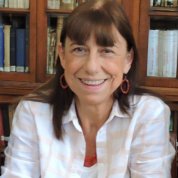 Is empathy dispositional or social? The complex relation between empathy and prosociality
Is empathy dispositional or social? The complex relation between empathy and prosocialityMaría Cristina Richaud, June 22nd, 2017
María Cristina Richaud has a PhD in Philosophy, with orientation in psychology (UBA). She is a Superior Researcher at CONICET, Director of the Psychology Doctoral Program at UCA, Vice President of the Centro Interamericano de Investigaciones en Psicologia y Ciencias Afines (CIIPCA). She has received the following distinctions: Bernardo Houssay award to scientific and technological research 2005 to the Consolidated Researcher in the area of Human and Social Science; Rubén Ardila International Award for Scientific Research in Psychology 2009; 2013 APA Award for Distinguished Contributions to the International Advancement of Psychology; Award of the Association for the Advancement in Psychological Science Carlo Molinari Marotto, for outstanding contribution to the scientific advancement of psychology in Argentina. November 2014.
She is also Director and Editor of Interdisciplinaria, Revista de psicología y ciencias afines, and represents Argentina in the bi-annual meetings of the International Union of Psychological Sciences (IUPsyS). She has published over two hundred articles and book chapters within her area of expertise. She is also the author of several books.
Download PDF (in Spanish): Maria Cristina Richaud – Empatia y prosocialidad
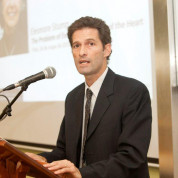 Legitimate aspirations or childish delusions: lights and shadows of the transhumanist program
Legitimate aspirations or childish delusions: lights and shadows of the transhumanist programMay 18th, 2017
Mariano Asla has a degree in Philosophy (Universidad Católica Argentina) and a PhD in Philosophy (Universidad de Navarra). He wrote the book “La gramática moral universal: ¿Una aproximación cognitivista a la ley moral?”[Universal Moral Grammar. A cognitive approach to natural law?] published by EUNSA. He is an Associate Professor of Philosophical Anthropology and Ethics at the School of Biomedical Sciences at the Universidad Austral. He is author of the book “La gramática moral univeral” (Universal Moral Grammar. A cognitive approach to natural law?), published by EUNSA. He is also a member of the Board of Ethics in Medicine (CAEEM) of the National Academy of Medicine. His research focus is philosophical naturalism, especially in areas such as cognitive science of morality and religion, and philosophy of pain, as well as the human universals and innatism.
Download PDF (in Spanish): Mariano Asla – Luces y sombras del programa transhumanista
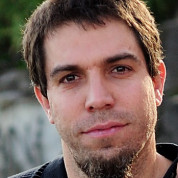 Meaning, Body and Brain
Meaning, Body and BrainAdolfo García, April 27th 2017
Dr. Adolfo M. García specializes in Language Neuroscience. He is Scientific Director of the Laboratory of Experimental Psychology and Neurosciences (LPEN-INCYT), Researcher of CONICET and Professor of Neurolinguistics at UNCuyo. He is also Associate Editor of the Journal of World Languages and the Journal of Alzheimer’s Disease. He has also served as Visiting Professor at universities in Colombia, Chile, Australia, Germany and China. He has over 70 articles in magazines of international prestige, regarding cognitive neurosciences and linguistics. Among his books are Qué son las neurociencias, in co-authoring with Agustín Ibáñez (Paidós 2015), Mente bilingüe (Comunicarte 2016) and An Introduction to Relational Network Theory (Equinox, in press). In 2013, he received the Most Outstanding Paper Award from the Linguistic Association of Canada and the United States. In 2015, he was awarded the Young Researcher Award, from the Argentine Association of Behavioral Sciences.
Download PDF (in Spanish): Adolfo Garcia – Significado, cuerpo y cerebro
 Self, subjectivity and person
Self, subjectivity and personJosé Eduardo Moreno, November 10th 2016
José Eduardo Moreno has a degree in Psychology from the Universidad de Buenos Aires and a Ph.D. in Psychology from the Universidad del Salvador. He is Deputy Director of the Interdisciplinary Center for Research in Mathematics and Experimental Psychology “Dr. Horacio J. A. Rimoldi” (CIIPME – CONICET) and Independent Researcher of the National Council of Scientific and Technical Research. He is also Titular Professor of the Pontificia Universidad Catolica Argentina and Ordinary Consulting Professor at the Universidad del Salvador. He is a specialist in developmental psychology (childhood and adolescence). His main research topics: a) psychological theories of social and moral development; b) evaluation of values and ethical positions; c) vocational and occupational motivations; d) self-concept, self-esteem and relationship with peers in adolescence.
Download PDF (in Spanish): Jose Eduardo Moreno – Self subjetividad y persona
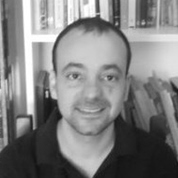 Idem – Ipse: two models for identity
Idem – Ipse: two models for identityJuan Ignacio Blanco Ilari, October 20th 2016
Juan Ignacio Blanco Ilari is a Research Professor in the area of Ethics and Modern Philosophy at the National University of General Sarmiento, and Professor of Ethics and Philosophy I at ESEADE. He is an Associate Researcher at CONICET. He co-directs the research project “Language and social link: subjectivation, support and criticism in some currents of contemporary thought” (CONICET) and is a member / researcher on the project “Experience and experimentation in late modernity: the diagnosis of the experience crisis and the rise of the society of experimentation” (UBA).
Download PDF (in Spanish): Juan Ignacio Blanco Ilari – Idem – ipse
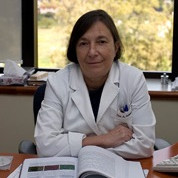 The Enhanced Brain
The Enhanced BrainÁngela Suburo, Septembre 29th 2016
Ángela Suburo has a PhD in Medicine (Universidad de Buenos Aires), and she specializes in neurosciences. She is a Senior Researcher at the National Council of Scientific and Technological Research (CONICET) and she is also Professor of Cellular and Molecular Medicine at Universidad Austral. She is member of several associations: Association for Research in Vision and Ophthalmology (Chairperson of the Retinal Cell Biology section), Society for Neuroscience, International Society for Eye Research, Asociación de Investigación en Visión y Oftalmología, Sociedad Argentina de Neuroquímica and Sociedad Argentina de Investigación Clínica. She leads a group of young researchers dedicated to the study of neurodegenerative diseases in the retina and in the brain. She has written numerous articles. In 2011 her work “Mecanismos de protección de los fotorreceptores: papel de los glucocorticoides” received the Nocetti and Tiscornia Prize, awarded by the National Academy of Medicine (Buenos Aires).
Download PDF (in Spanish): Angela Suburo – El cerebro mejorado
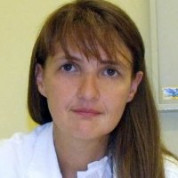 Neuropsychology of decision making and religion
Neuropsychology of decision making and religionNora Grañana, August 25th 2016
Nora Grañana is MD and PhD in Neuroscience. She is staff Doctor at Durand Hospital in Buenos Aires. She specializes in child neurology, particularly in autism. She participates in campaigns to promote awareness about autism at different levels of society, including public authorities in the field of health. She coordinates PROTECTEA autism programs and early intervention RENACER, from the Ministry of Health of the City of Buenos Aires.
Download PDF (in Spanish): Nora Grañana – Neuropsicología de la toma de decisiones y cognición social
 Neuroscience and anthropology
Neuroscience and anthropologyJuan José Sanguineti, August 11th 2016
Juan José Sanguineti has a PhD in Philosophy (Universidad de Navarra, Spain). He is Professor of Philosophy of Knowledge at the School of Philosophy of the Pontifical University of the Holy Cross (Rome). He has published fifteen books and nearly a hundred scientific articles on theory of knowledge, philosophy of science, philosophy of nature, philosophy of mind and the neurosciences. He was Director of the Scientific Committee of the Project STOQ III (Rome, 2007-2010, University of the Holy Cross, area of Neurosciences). He regularly delivers graduate courses and seminars at different universities in Latin America. He is ordinary member of the Pontifical Roman Academy of Saint Thomas and of the Sociedad Tomista Argentina. He is a member of the scientific committee of the journal Acta Philosophica (University of the Holy Cross). See more.
Download PDF (in Spanish): Juan J. Sanguineti – Neurociencia y antropologia
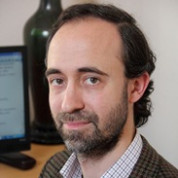 On the 'naturalization' of consciousness
On the 'naturalization' of consciousnessJuan F. Franck, July 7th 2016
Juan F. Franck has a PhD in philosophy (Internationale Akademie für Philosophie, Liechtenstein) and has done post-doctoral research in the US, Switzerland, Italy and Spain. He has published “From the Nature of the Mind to Personal Dignity” (CUA Press 2006) and a number of specialized articles. Between 2005 and 2010 he held a research position at Universidad Católica Argentina, where he focused on the problem of embodiment and on topics of the Theory of Knowledge. He joined the Institute of Philosophy in 2012 and focused on the Philosophy of Neurosciences. In his presentations and writings he tries to integrate different viewpoints (classical, modern, phenomenological, analytic) in order to approach the philosophical problems raised by the neurosciences. He also teaches Modern Philosophy at Universidad del Norte Santo Tomás de Aquino.
Download PDF (in Spanish): Juan F. Franck – La ‘naturalización’ de la conciencia
 Mind-reading and empathy and the knowledge of persons
Mind-reading and empathy and the knowledge of personsEleonore Stump, May 26th 2016
Eleonore Stump is the professor of the Robert H. Henle chair at the University of Saint Louis (USA), where she teaches since 1992. She has an extense list of publications in the areas of Philosophy of Religion, in Contemporary Metaphysics, and Medieval philosophy. She is a former President of the Society of Christian Philosophers of the American Catholic Philosophical Association, of the American Philosophical Association (central division); and is a member of the American Academy of Arts and Sciences. She has been a lecturer at the prestigious Gifford Lectures (Aberdeen, 2003), Wilde lectures (Oxford , 2006) , and Stewart lectures (Princeton , 2009).
Download PDF: Modes of knowing
